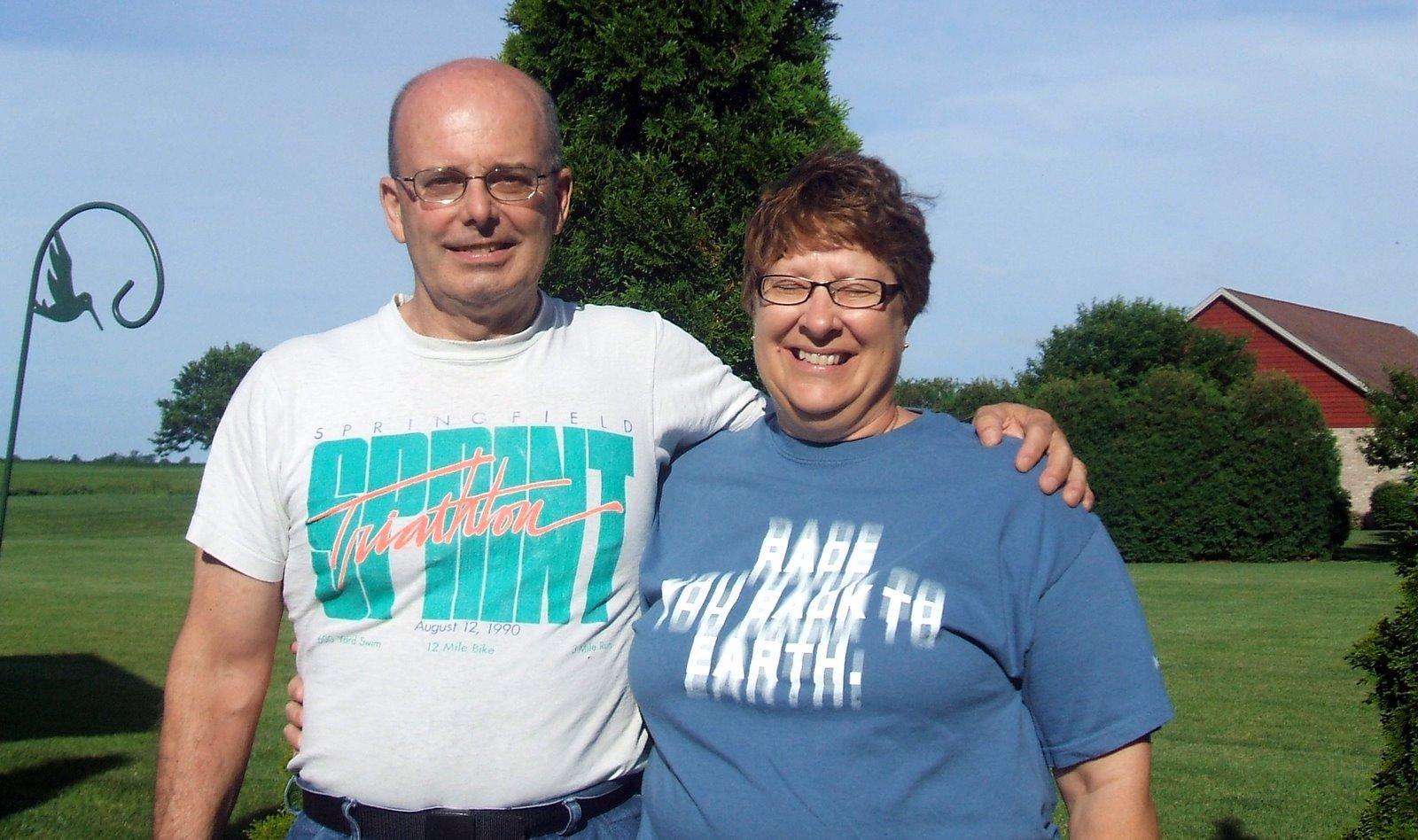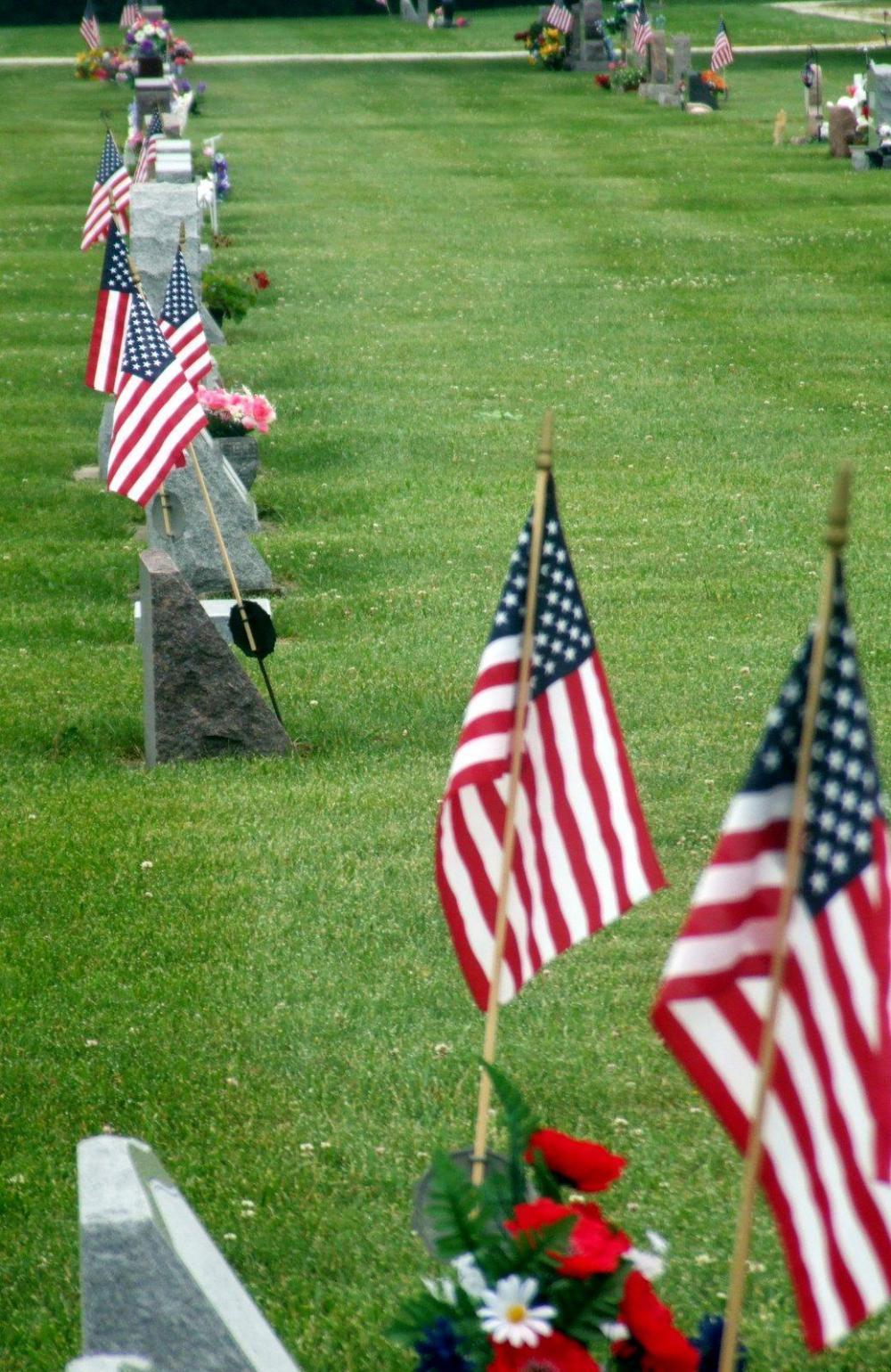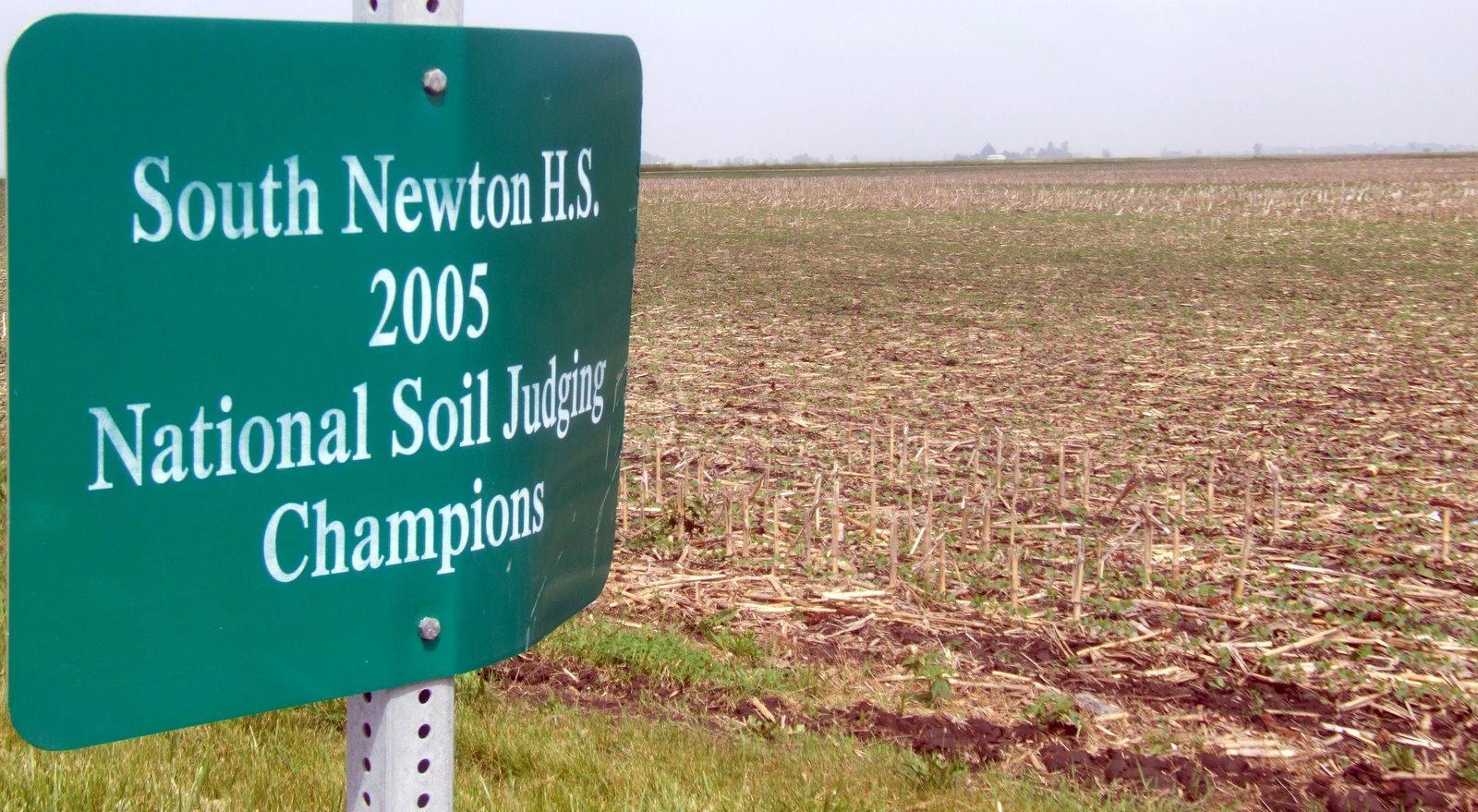June 1: Rensselaer to Danforth, Illinois

| Heart | 3 | Comment | 0 | Link |
TONIGHT, WE HAVE BEEN TAKEN IN BY THE POLICE. Literally taken in.
Ashkum is a little grain town where golf carts are allowed on the streets to make it a quieter and cleaner to live. It is named after an Indian chief. A railway runs past the edge of town, the short main street has individual buildings and slowly declining businesses, and the immaculate park in which cyclists can camp occupies two blocks in the centre.
To camp in the park needs the permission of the mayor, or at any rate access to his keys to open the toilet block. The mayor is only part time so finding him can be tricky. We started at the fire and ambulance building where, within minutes, we had occupied everyone on duty. Phone calls were made, the mayor sought, and pretty soon a mean hombre of a policeman turned up, leaning on the doorpost and wearing dark glasses and all but chewing on a matchstick.
"You guys wanna follow me?" he asked, and he set off in his patrol car as we rode wearily behind him after a long, hot and far from enjoyable day in dull countryside. There had been no hills so our legs were pristine if sun-prickled but there was amazing protest from our backsides. And we were thirsty, very thirsty, and hungry.
"Most cyclists set up just about there," the policeman said, his car parked with its door open at the roadside. He waved at an area away from the pavilion and its bright lights. "The mayor'll be along in ten minutes to open up for you."
We asked his opinion on cold beers and food, thanked him for his trouble, and he walked away with his gun on his hip. Moments later he was back.
"Course, the other option is that you come home and stay with us if you like," he said. "You could have a soft bed and drink a beer with us. And we can launder all your dirty clothes if you want."
There was nothing in that list that a tired cyclist could object to. Especially on a night when storms were forecast. Amazed once more at the spontaneous friendliness and generosity of Americans, we asked for directions and said we'd be there as soon as a cold beer and tired legs would allow.
"I used to be an avid cyclist," Jim said. "I've ridden four double centuries..."
He shrugged.
"Now all I do is talk about it."
He and his wife Kathy live four miles south of Ashkum. They share their house with four boisterous and agile dogs, three of which Kathy trains for agility competitions. The fourth is too old. In the backyard was an obstacle course of white hurdles with blue and red stripes.
Jim has been in the police for decades, and in a lot of different towns. Kathy works for UPS, the parcel service. When UPS moves her to a new base, Jim moves to another force. In Ashkum he works 30 hours a week, usually in the evening into the small hours. The state police are on the edge of town but townspeople like to see their own cop on the street at night.
"I haven't put anyone in jail for ten years and pretty much nothing happens in town, and that's the way people like it. There are a couple of bars in town and sometimes there's a disturbance there, but that's about it." The rest of the time he works for a security agency near Chicago, where everyone assumes he's a tough city cop - "And Chicago cops are pretty tough, believe me" - and give him no trouble. Most of the other guards are moonlighting policemen from the big city.
He also works for a local farmer from time to time, bringing in crops, although Kathy speculates that it's more because the farmer's lonely and looking for company.
Jim's spare room has a 1970s bike on an equally old turbo, a sweat towel spread to the handlebars. There are pictures of Lance Armstrong in the kitchen and a sparkling road bike in the hall, "paid for by an insurance company after I was knocked off my other bike by an old lady who really shouldn't have been driving."

| Heart | 1 | Comment | 0 | Link |

| Heart | 2 | Comment | 0 | Link |
We have had several brushes with death of our own today. Just before Brook we stopped at one of the many cemeteries that stand on the edges of towns and sometimes for no reason out in the countryside. We were agog at the number of American flags - more than 300 - on the graves. It was as we counted them that we found gravestones engraved with pictures of the dead man's favourite RV and one, from a farming family, of a tractor at work. Another had a side-on illustration of a semi-articulated truck. Many stones had names of people who weren't yet dead. They had picked themselves a spot or they were the husband or more usually the wife of a dead partner.
"In an odd way you probably find it reassuring to know you'll end up beside a loved one," Steph said, "even though every time you see your name you know the days are ticking down to your own death."
A man arrived in a dark pick-up while we were there. He took no notice of us but caught up with us when we were taking a Sticky Bun Opportunity in the village shop.
"Saw you was up there when I was tending the stones," he said. "Oldest one we got in there is a girl who died on a train in 1812."
"A railway train?"
"A wagon train. Passing through, I guess, when she fell ill and died. And we got a Confederate soldier. He was pretty much the second one in there."
He gave us a guide to the village's history. Three buddies from the village died in the Kansas when the Japanese bombed Pearl Harbor, for instance. "They'd always been together, wanted to enlist together and then they died together. That's a lot for one small village."
Now is was the village that was dying.
"People here work on the land. Most of the farms, they're family-owned, about 90 per cent of them. Land here's the best in the country. Six thousand dollars an acre. But the farms that used to support three families, now they don't. There aren't enough people in the neighbourhood to attract other employers here and so the young people leave to work elsewhere. It's a piddy."
Our last brush with death was an hour further on, when small, grey gravestones caught my eye. The last time I'd seen stones like that, it was a Civil War graveyard in Virginia. No Civil War this time. But, on a wooden sign surrounded by grass at the entrance, search and we would find a soldier from the Revolutionary War, the war that Americans and the French fought to oust Britain from south of the Canadian border and secure independence for the USA.

| Heart | 0 | Comment | 0 | Link |
The old soldier had survived the war. His gravestone must have survived for a long time as well but some time recently it was replaced by something more modern. The replacement is out of character with the stones of brothers and sisters that lie beside him. A shame.
By European standards, the grave isn't especially ancient. But it is striking to stand beside a direct link to the founding of a nation.
AMERICAN FLAGS SEEN: 437
| Rate this entry's writing | Heart | 3 |
| Comment on this entry | Comment | 0 |


